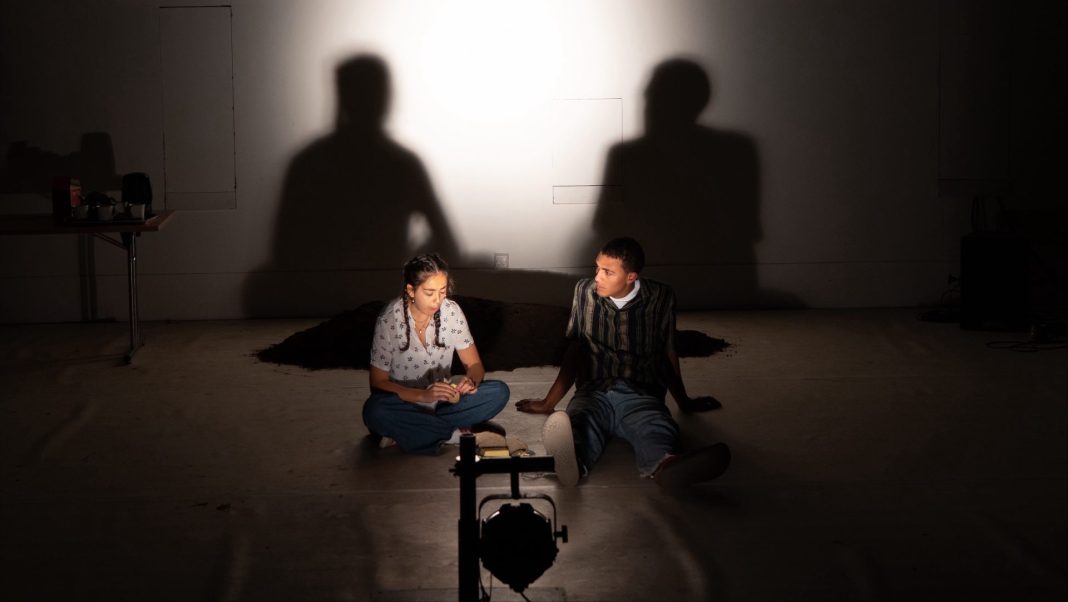It is a privilege to attend the most anticipated production of the term, and even more so when that it is a triumph. As a piece of student theatre rivalling professional quality, Fennec Fox Production’s Uncle Vanya is doubtless one of the strongest performances to grace the O’Reilly this term.
This production of Anton Chekhov’s classic is brought to life through a contemporary translation by Robert Icke. Set in the Russian countryside, everything stems from the visit of an old professor Alexander (Giles MacDonald) and his younger wife Elena (Laura Boyd) to the country estate left to him by his first wife. John (Ezana Betru), brother of the professor’s first wife, and the local doctor Michael (Rufus Shutter), both become enamoured by Elena while Sonya (Lucía Mayorga), the professor’s daughter, develops unrequited feelings for the doctor.
The general overview: it is quickly established that almost all characters want something they should not. Their feelings, connections, and worldviews are tugged and tangled like strings throughout the play, and by the end are tense to the point of irreparable rupture.
Like any play with such a large line-up of core cast members, it is constantly a riddle to work out what connects the characters. In this play, it is the past which is both perpetually present and unspoken: the death of Faith, Alexander’s first wife, looms over the house, as Faith lingers onstage throughout the entire performance. Never speaking a word, she (Elektra Voulgari Cleare) simply watches the action of the play unfold, truly haunting the narrative. As the relationships between characters boil over, the play manages to maintain its sense of melancholy without being drowned in tension.
But the first wife is not the only constant onstage presence: the set design, featuring a grand forest, ensures that the importance of the natural world becomes an undeniable feature. The destruction of these forests, which occupies Michael’s troubled thoughts, is mirrored by the gradual collapse of the relationships within the house. Every scene is framed by nature, as a bouquet of bare branches hangs from the ceiling, giving way to a pile of leaves at one point in the production. It builds a sense of desolation in combination with the soft lighting – in various moments it was tempting to imagine the actors on the verge of stepping outside into a cold afternoon.
The instances of grief and loss are not regarded as themes wholly separate from this natural setting. The grave-like mound of soil, impossible to ignore in its central onstage position, at first seems like it ought to represent a garden or perhaps Faith’s death, but in fact serves as a reminder of the gradual death of our planet. The pile is rarely acknowledged in the production: in fact, the first time an actor interacted with it felt like such a fourth-wall break that the audience laughed. We all seemed to acknowledge the dedication of a production in including an element that would entail such a laborious clean-up act.
Arranged in thrust layout, with a small collection of audience members on either side of the stage, Fennec Fox put the grand space offered by the O’Reilly theatre to good use. The ambitious venue matched the ambitious play. Rather than fall into the trap of grand furnishings for a Chekhov production, the choice was to create a singular open space, even utilising the overhead rigs. This was hugely successful: it felt like a theatrical production because it was centred around the interaction between actors, rather than the space which they occupy. The interchangeability between the natural space, the audience, and the home really evoked humanity’s relation to the forest.
The actors were magnetic – the acting was undeniably and uniformly exceptional, and there was a tangible chemistry and connection between all castmates. Betru’s sudden explosion and forceful direction in the second half was gripping, while MacDonald’s exit left me unexpectedly teary – he encapsulated the heartache and longing of a generational detachment in such a controlled and careful performance. Shutter’s performance as the young doctor shone throughout. Whether he was charismatic or ignorant, smirking or snogging, his performance was appealing across the character’s emotional spectrum. As he and Mayorga sat at the audience’s feet, the complex dynamics between the two were palpable despite their stillness.
Ultimately, however, it was Mayorga and Boyd as Sonya and Elena who stole the show. They both gave electric performances, and the tension between the two characters was heartbreaking. Mayorga’s youthful and innocent energy balanced Boyd’s maturity and strength with admirable cohesion. It is no easy feat to convey the depth of the relationship between two women from different generations, especially when such stiff comparison will inevitably be drawn, but they handled it with delicacy and honesty. In such an extended production littered with emotional soliloquies, one would expect a disconnect in the moments of grandeur, but there was no sense of competition between the two actors. It is impressive for a cast to be consistently talented at staying still and crying in such an effortless way, but the ease of silence rang true throughout the entire performance.
Uncle Vanya was clearly rehearsed to perfection, but nothing ever felt laborious. The production felt driven only by pure compassion for the characters. For nearly three hours, I felt like I was watching a group of people try to connect with each other, rather than merely observing actors on a stage.


